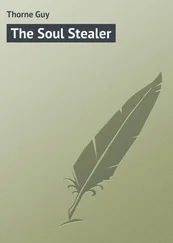Guy Thorne - The Drunkard
Здесь есть возможность читать онлайн «Guy Thorne - The Drunkard» — ознакомительный отрывок электронной книги совершенно бесплатно, а после прочтения отрывка купить полную версию. В некоторых случаях можно слушать аудио, скачать через торрент в формате fb2 и присутствует краткое содержание. Жанр: foreign_prose, на английском языке. Описание произведения, (предисловие) а так же отзывы посетителей доступны на портале библиотеки ЛибКат.
- Название:The Drunkard
- Автор:
- Жанр:
- Год:неизвестен
- ISBN:нет данных
- Рейтинг книги:5 / 5. Голосов: 1
-
Избранное:Добавить в избранное
- Отзывы:
-
Ваша оценка:
- 100
- 1
- 2
- 3
- 4
- 5
The Drunkard: краткое содержание, описание и аннотация
Предлагаем к чтению аннотацию, описание, краткое содержание или предисловие (зависит от того, что написал сам автор книги «The Drunkard»). Если вы не нашли необходимую информацию о книге — напишите в комментариях, мы постараемся отыскать её.
The Drunkard — читать онлайн ознакомительный отрывок
Ниже представлен текст книги, разбитый по страницам. Система сохранения места последней прочитанной страницы, позволяет с удобством читать онлайн бесплатно книгу «The Drunkard», без необходимости каждый раз заново искать на чём Вы остановились. Поставьте закладку, и сможете в любой момент перейти на страницу, на которой закончили чтение.
Интервал:
Закладка:
Alcoholism so changes the mental life of any one that it results in an ego which has special external and internal characteristics.
And so, in order to appreciate fully this history of Gilbert Lothian – to note the difference between the man as he was known and as he really was – it must always be kept in mind under what influence he moves through life, and that his steps have strayed into a dreadful kingdom unknown and unrealised by happier men.
He had passed out of one great Palace of Drink.
Had he been as he supposed himself to be, he would have sought rest at once. He would have hurried joyously from temptation in this freedom from his chains.
Instead of that, the question he asked himself was, "What shall I do now?"
The glutton crams himself at certain stated periods. But when repletion comes he stops eating. The habit is rhythmic and periodically certain.
But the Drunkard – his far more sorrowful and lamentable brother – has not even this half-saving grace. In common with the inordinate smoker – whose harm is physical and not mental – the inebriate drinks as long as he is able to, until he is incapacitated. "Where shall I go now?"
If God does indeed give human souls to His good angels, as gardens to weed and tend, that thought must have brought tears of pity to the eyes of the august beings who were battling for Gilbert Lothian.
Their hour was not yet.
They were to see the temple of the Paraclete fall into greater ruin and disaster than ever before. The splendid spires and pinnacles, the whole serene beauty of soul and body which had made this Temple a high landmark when God first built it, were crumbling to decay.
Deep down among the strong foundations the enemy was at work. The spire – the "Central-one" – which sprang up towards Heaven was deeply undermined. Still – save to the eyes of experts – its glory rose unimpaired. But it was but a lovely shell with no longer any grip upon its base of weakened Will. And the bells in the wind-swept height of the Tower no longer rang truly. On red dawns or on pearl-grey evenings the message they sent over the country-side was beginning to be false. There was no peace when they tolled the Angelus.
In oriel or great rose-window the colour of the painted glass was growing dim. The clear colour was fading, though here and there it was shot with baleful fire which the Artist had never painted there, – like the blood-shot eyes of the man who drinks.
A miasmic mist had crept into the noble spaces of the aisles. The vast supporting pillars grew insubstantial and seemed to tremble as the vapour eddied round them. A black veil was quickly falling before the Figure above the Altar, and the seven dim lamps of the Sanctuary burned with green and flickering light.
The bells of a Great Mind's Message, which had been cast with so much silver in them, rang an increasing dissonance. The trumpets of the organ echoed with a harsh note in the far clerestory; the flutes were false, the dolce stop no longer sweet. The great pipes of the pedal organ muttered and stammered in their massive voices, as if dark advisers whispered in the ear of the musician who controlled them.
Lothian had passed from one great Palace of Drink. "Where shall I go?" he asked himself again, and immediately his eye fell upon another, the brilliant illumination upon the façade of a well-known "Theatre of Varieties."
His hot eye-balls drank in the flaring signs, and telegraphed both an impulse and a memory to his brain.
"Yes!" he said. "I will revisit the 'Kingdom.' There is still two thirds of an hour before the performance will be over. How well I used to know it! What a nightly haunt it used to be. Surely, even now, there will be some people I know there? .. I'll go in and see!"
As Lothian turned in at the principal doors of the most celebrated Music Hall in the world, his pulses began to quicken.
– The huge foyer, the purple carpets, with their wreaths of laurel in a purple which was darker yet, the gleaming marble stairway, with its wide and noble sweep, how familiar all this dignified splendour was, he thought as he entered the second Palace of Drink which flung wide its doors to him this night.
A palace of drink and lust, vast and beautiful! for those who brought poisoned blood and vicious desires within its portals! Here, banished from the pagan groves and the sunlit temples of their ancient glory – banished also from the German pine-woods where Heine saw them in pallid life under the full moon – Venus, Bacchus and Silenus held their unholy court.
For all the world – save only for a few wise men to whom they were but symbols – Venus and Bacchus were deities once.
When the Acropolis cut into the blue sky of Hellas with its white splendour these were the chiefest to whom men prayed, and they ruled the lives of all.
And, day by day, new temples rise in their honour. Once they were worshipped with blythe body and blinded soul. Now the tired body and the besotted brain alone pay them reverence. But great are their temples still.
Such were the thoughts of Lothian – Lothian the Christian poet – and he was pleased that they should come to him.
It showed how detached he was, what real command he had of himself. In the old wild days, before his marriage and celebrity, he had come to this place, and other places like it, to seize greedily upon pleasure, as a monkey seizes upon a nut. He came to survey it all now, to revisit the feverish theatre of his young follies with a bland Olympian attitude.
The poison was flattering him now, placing him upon a swaying pedestal for a moment. He was sucking in the best honey that worthless withering flowers could exude, and it was hot and sweet upon his tongue.
– Were any of the old set there after all? He hoped so. Not conscious of himself as a rule, without a trace of "side" and detesting ostentation or any display of his fame, he wanted to show off now. He wanted to console himself for his rebuff at the house in Bryanstone Square. Vulgar and envious adulation, interested praise from those who were still in the pit of obscurity from which his finer brain had helped him to escape, would be perfectly adequate to-night.
After the episode at the Amberleys', coarse flattery heaped on with a spade would be as ice in the desert.
And he found what he desired.
He passed slowly through the promenade, towards the door which led to the stalls, and the great lounge where, if anywhere, he would find people who knew him and whom he knew.
In a slowly-moving tide, like a weed-clogged wave, the women of the town ebbed and flowed from horn to horn of the moon-shaped crescent where they walk. Against the background of sea-purple and white, their dresses and the nodding plumes in their great hats moved languorously. Sickly perfumes, as from the fan of an odalisque, swept over them.
Many beautiful painted masks floated through the scented aisle of the theatre, as they had floated up and down the bronze corridors of the Temple of Diana at Ephesus in the far off days of St. Paul. A mourning thrill shivered up from the violins of the orchestra below; the 'cellos made their plaint, the cymbals rattled, the kettledrums spoke with deep vibrating voices.
.. So had the sistra clanked and droned in the old temple of bronze and silver before the altars of Artemis, – the old music, the eternal faces, ever the same!
A chill came to Lothian as he passed among these "estranged sad spectres of the night." He thought suddenly of his pure and gracious wife, alone in their little house in the country, he thought of the Canaanitish harlot whose soul was the first that Christ redeemed. For a moment or two his mind was like a darkened room in which a magic lantern is being operated and fantastic, unexpected pictures flit across the screen. And then he was in the big lounge.
Читать дальшеИнтервал:
Закладка:
Похожие книги на «The Drunkard»
Представляем Вашему вниманию похожие книги на «The Drunkard» списком для выбора. Мы отобрали схожую по названию и смыслу литературу в надежде предоставить читателям больше вариантов отыскать новые, интересные, ещё непрочитанные произведения.
Обсуждение, отзывы о книге «The Drunkard» и просто собственные мнения читателей. Оставьте ваши комментарии, напишите, что Вы думаете о произведении, его смысле или главных героях. Укажите что конкретно понравилось, а что нет, и почему Вы так считаете.












